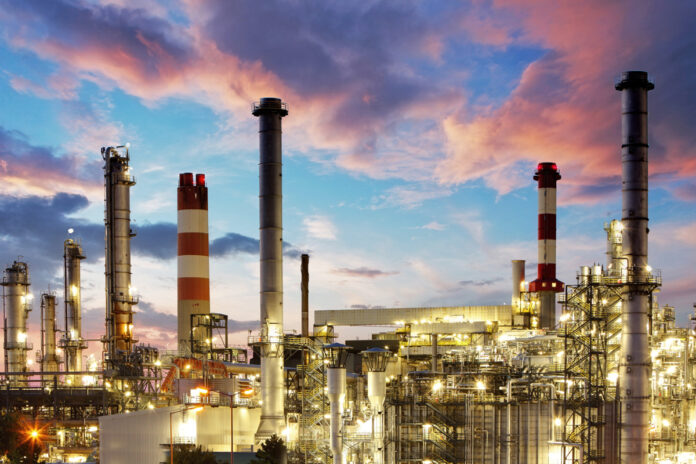ISLAMABAD: The Petroleum Division has prepared a final draft of Pakistan Oil Refinery Policy, 2021 which is expected be tabled in next meeting of the Economic Coordination Committee (ECC) of the Cabinet for approval.
According to sources, a final draft of the policy will be laid before upcoming ECC meeting which is likely to be held during next week. After getting ECC’s nod, the same draft policy will be presented in the federal cabinet to get its final approval prior to its promulgation in the country.
The new policy would attract huge investment in the oil refining sector by offering tax rebate to the local and foreign investors for up-gradation and establishment of new deep-conversion refineries.
Similarly, import duty on motor gasoline from 5 per cent to 10pc, and diesel from 13pc to 10pc would be applicable as tariff protection for refineries, effective from January 1, 2022 to December 31, 2026.
Likewise, there would be a 10-year income tax holiday for up-gradation, modernisation and expansion of the existing refinery projects, besides a 20-year income tax holiday for all new deep-conversion refinery projects of a minimum capacity of 100,000 barrels per day (bpd).
As per the policy, the product pricing formula of refineries would be based on “True Import Parity Price”, while there would be zero duty on import of crude oil from fiscal year 2023-24 (FY24).
The policy would also offer exemption from customs duties and other levies on the import of any equipment and machinery for up-gradation and establishment of new oil facilities whereas there will be no restriction on the selection of equipment, technology or process other than the fact that it must be deep conversion refinery.
However, no new hydro-skimming refinery will be allowed to be installed in the country.
Infrastructure such as Single Point Mooring (SPM), Single Bouy Mooring (SBM), jetties, subsea/land pipelines, oil terminals, and tank farms will be treated as separate Projects and the incentives shall also be applicable to these projects. Wherever applicable, separate licenses will be obtained for the above mentioned Infrastructure from the relevant Authorities
The government will not provide any product off-take guarantees. Refineries will be allowed to sell products to any marketing company including their own affiliates in marketing and distribution. However, import of finished products by OMCs will be limited to only projected deficit in accordance with provisions of Rule 35(g) of the Pakistan Oil Rules 2016, ensuring uplifting of local refined products first.
Locally produced crude will be allocated to the closest refinery that can handle crude with such specifications. Once allocated, the same may not be cancelled if a new refinery comes up closer to the crude source, unless mutually agreed amongst the existing user, new proposed user and the Petroleum Division, Ministry of Energy. After upliftment of local crude oil, if so allocated, the refineries will be free to import crude oil from any source except from prohibited countries, with no obligation or guarantee on the part of the Government of Pakistan.
Refineries will be allowed export of surplus petroleum products, or products with specifications that do not have local demand under the intimation to OGRA and MEPD.
All existing refineries are encouraged to upgrade and modernize their refineries to produce environmental friendly fuels as per specifications notified by Petroleum Division. OGRA will monitor modernisation projects and submit quarterly work assessment report to Petroleum Division based on refinery’s work plan.
Currently, there are five players operating in the oil refining sector in Pakistan including, Pak-Arab Refinery Limited (PARCO), Attock Petroleum Limited (ARL), National refinery Limited (NRL), Pakistan Refinery Limited (PRL) and Byco Petroleum Pakistan Limited (BPPL). All of the refineries are hyrdoskimming refineries, except for PARCO which is a mild-conversion refinery.
Four out of the five refineries operating in Pakistan are using old technology and even the fifth one, PARCO, is now more than 20 years old. Despite being integral to the growth of the economy, no new refinery could materialise for more than a decade and only two refineries have been added in last 40 years, including PARCO, 60pc of which is owned by the government.
Pakistan’s local refineries are the backbone of heavy industrial development and are intrinsically connected to defense and energy security needs of the country. They have a pivotal role in the energy supply chain and economic development of Pakistan.
The product slate typically comprises of Naphtha, Motor Gasoline (MS), High Speed Diesel (HSD), Furnace Oil (FO), Kerosene, Jet fuel (JP-1&JP-8), High-Octane Blending Component (HOBC), Liquefied Petroleum Gas(LPG) and Light Diesel Oil (LDO).
Pakistan’s oil refining capacity is about 450,000 barrels per day (bpd), equivalent to 20 million tons per annum.
Historically, local refineries have supplied about 60pc of country’s requirements of diesel, 30pc of motor gasoline and 100pc of jet fuel for defense. The rest is imported as refined products.
Meanwhile, state run-oil and gas exploration companies have warned the government that investment in liquefied petroleum gas (LPG) extract plants would come to halt due to anti-local and pro-importers polices, which offer tax concessions to LPG importers.
According to local media reports, during a meeting on the new proposed LPG Policy 2021, state-run companies; Oil and Gas Development Company (OGDC), Pakistan Petroleum Limited (PPL) and Pak Arab Refinery Limited (Parco), said that they had set up LPG extraction plant at a cost of $20-30 million.
However, disparity in taxes in favour of LPG importers had resulted in a loss for them. They said that they had to cut prices of LPG several time due to monopoly of LPG importers.
The meeting was informed that there would be no new LPG extraction plant in future if pro-importers policies continue and that LPG importers were bringing cheaper and low quality LPG from Iran while there is no mechanism to check quality.




